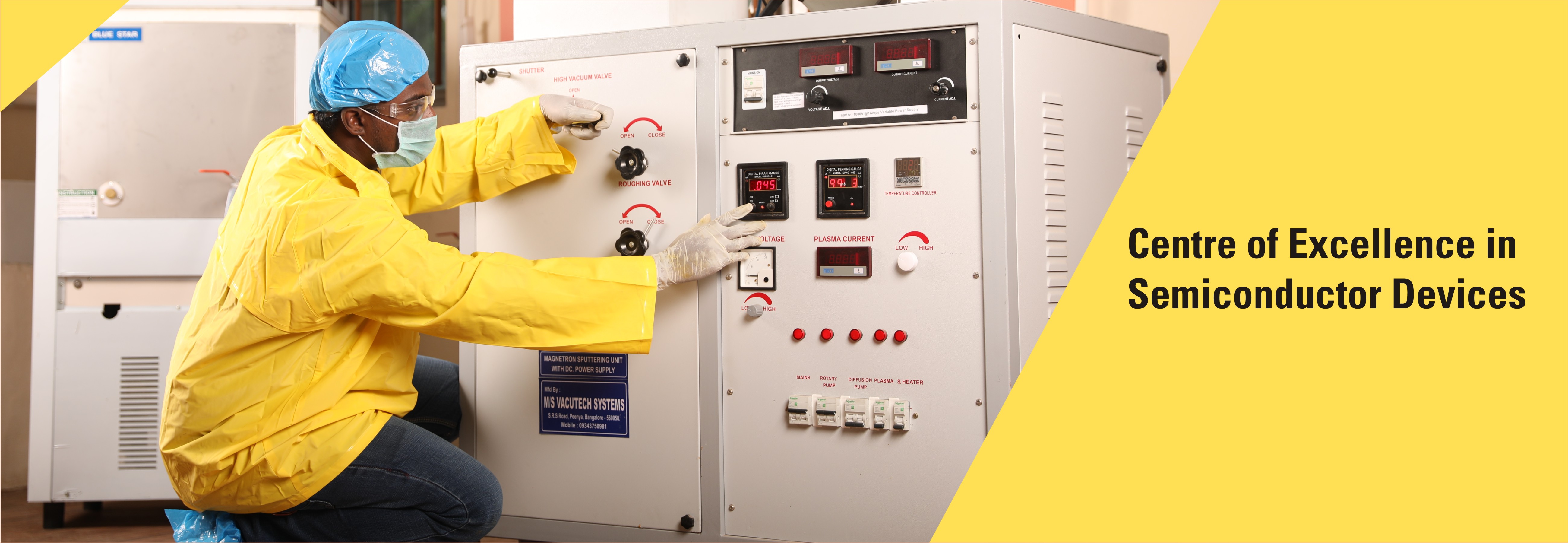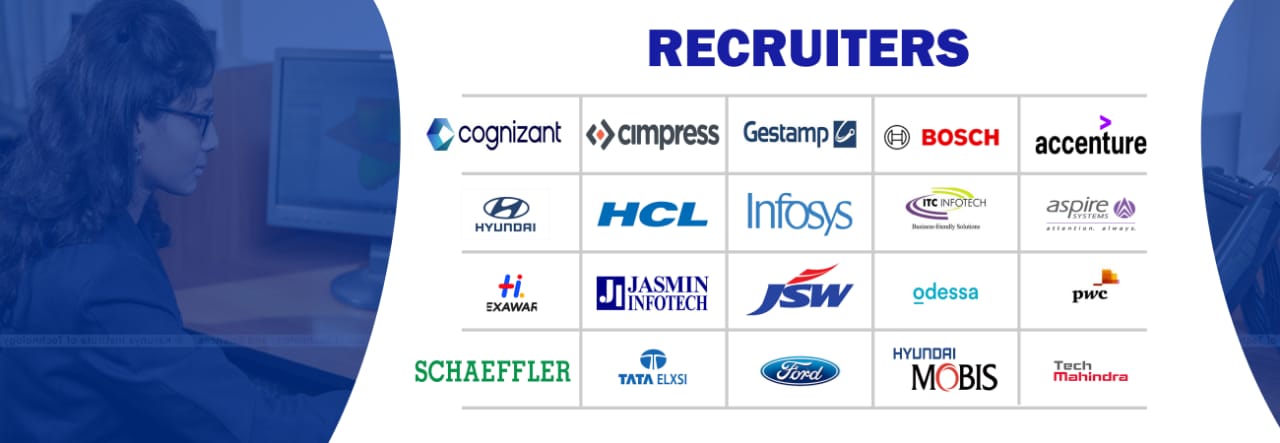

Division of Electronics and Communication Engineering
History
The Division of Electronics and Communication Engineering (ECE), established in 1986, is a premier academic unit accredited by the National Board of Accreditation (NBA). The department offers Undergraduate (UG), Postgraduate (PG), and Doctoral (Ph.D.) programs, designed to nurture innovation, technical expertise, and research excellence.
The department is equipped with state-of-the-art laboratories that cater to advanced domains such as Electronics, Communication Systems, Internet of Things (IoT), VLSI Design, Artificial Intelligence, and Data Science. Strong linkages with leading industries are sustained through Memoranda of Understanding (MoUs) with reputed organizations including Samsung R&D Institute India–Bangalore Pvt. Ltd., Altair Engineering India Pvt. Ltd., Intel Technology India Pvt. Ltd., and Test and Verification Solutions India Pvt. Ltd. These collaborations facilitate knowledge exchange, industrial training, and joint research initiatives.
The department is distinguished by its highly qualified, experienced, and research-driven faculty who consistently contribute to the advancement of scientific knowledge. The research focus is aligned toward publishing in high-impact, Scopus- and Web of Science-indexed journals, reflecting both the depth and quality of scholarly contributions. Collaborative research with top-tier international institutions further strengthens the department’s global academic standing.
The ECE Division has successfully executed several externally funded projects worth INR 5.6 crore, sponsored by eminent agencies such as DST, DRDO, ISRO, CSIR, and ICMR. In addition, the department undertakes consultancy projects in cutting-edge areas like antenna fabrication, signal processing, and machine learning, while the increasing number of granted patents stands as testimony to the department’s innovative research culture.
Faculty and students are actively associated with professional bodies such as IEEE and IETE, fostering a culture of continual learning and professional growth. Students are encouraged to participate in in-plant training, summer internships, and full-semester industrial projects, ensuring strong industry exposure and practical competence. The department also maintains an excellent placement record, with all eligible students securing opportunities in leading national and multinational organizations.
Vision of the Institution
True to its name Karunya which means 'Compassion' shall be an institution with social concern to address the problems of humanity through technical education, research and development, products, patents and extension.
The faculty and students of Karunya will be nurtured in character, ethics and spiritual discernment to serve the society with fervor and zeal.
Mission of the Institution
To raise students to serve humanity by attaining high levels of academic excellence and professional competence with exemplary values and social concern.
To find solutions to human problems in areas relating to water, food, health and sustainable energy through scientific, social and technological research.ern.
To setup care homes for physically and mentally challenged, the elderly and the terminally ill, enabling students to understand human needs through participation and dedication, solving problems through research, development, innovation and spiritual care.
Vision of the Division
Raise competent Electronics and Communication engineers to solve relevant problems and undertake research render to life on earth sustainable.
Mission of the Division
M1: Enhance employability through student-centric teaching-learning process.
M2: Promote higher education and research initiatives through continuous industry interaction.
M3: Inculcate professional ethics and entrepreneurial attitude, addressing needs of the society.
Testimonies by Our Students
 Mr. L. K Livingstone B.Tech ECE(2020-24) Placed in Tejas Network and Accenture
Mr. L. K Livingstone B.Tech ECE(2020-24) Placed in Tejas Network and Accenture Mr. Eajarla Reddy Sreekar B.Tech ECE(2020-24) Placed in Bi3, Intellipath and Jet Aerospace
Mr. Eajarla Reddy Sreekar B.Tech ECE(2020-24) Placed in Bi3, Intellipath and Jet Aerospace Centre for Research
The Centre of Excellence in VLSI Design, established in 2018 in collaboration with M/S Test & Verification Solutions India Pvt. Ltd., offers students a unique opportunity to master advanced VLSI testing and verification. Equipped with state-of-the-art H-SPICE tools and high-end Linux platforms, the centre provides hands-on industry-level exposure through internships, live projects, and placement support. It also offers a specialized postgraduate programme in VLSI Design, empowering learners to build successful careers in the rapidly growing semiconductor industry.
Centre for Research in Semiconductor DevicesThe Centre for Research in Semiconductor Devices, established in 2019, is a premier hub for innovation and excellence in micro- and nanoscale semiconductor fabrication and modeling. Designed to meet emerging industry and research demands, the centre offers students hands-on exposure to advanced semiconductor technologies. Through collaborative projects with leading national agencies such as ISRO, DRDO, and the Division of Electronics, learners gain invaluable research experience and career-ready skills, positioning them at the forefront of India’s growing semiconductor industry.
Chips to Startup LaboratoryThe Chip-to-Startup Laboratory, established in 2023, is a state-of-the-art centre dedicated to developing configurable and scalable IoT System-on-Chip (IoTSoC) solutions for automobile applications. Equipped with industry-grade EDA tools worth ₹4 crores, the laboratory focuses on SoC design, IP development, FPGA prototyping, and system validation, ensuring alignment with the latest industrial standards. Through its advanced infrastructure and real-time research initiatives, the centre drives innovation in automotive electronics and IoT-enabled systems, fostering technological excellence in the semiconductor and embedded systems domains.
News and Events
ECE Admissions 2026 Open
Contact Us
Dr. D. Jude Hemanth,
Professor and Head,
Division of ECE
E-mail: [email protected],
Phone: 0422-2614393
